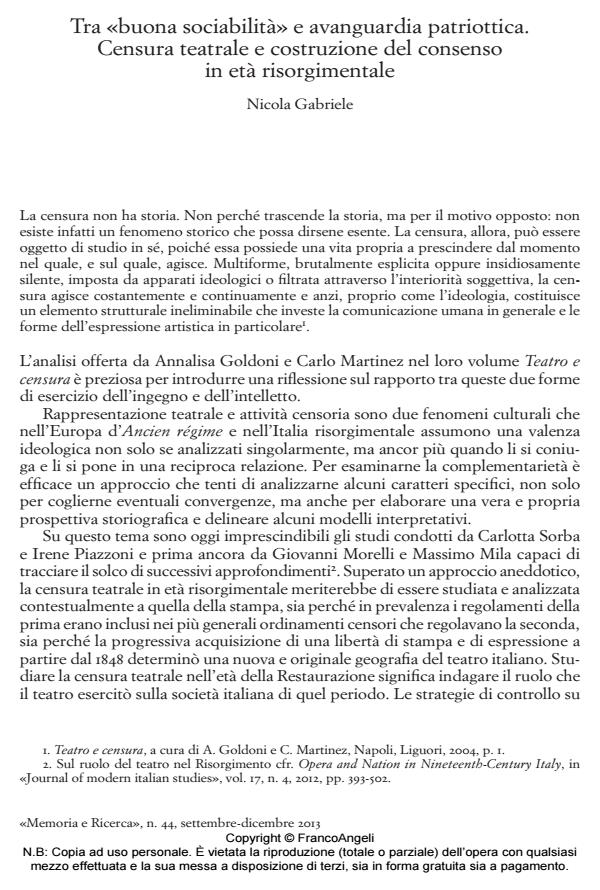Tra "buona sociabilità" e avanguardia patriottica. Censura teatrale e costruzione del consenso in età risorgimentale
Titolo Rivista MEMORIA E RICERCA
Autori/Curatori Nicola Gabriele
Anno di pubblicazione 2013 Fascicolo 2013/44
Lingua Italiano Numero pagine 18 P. 25-42 Dimensione file 125 KB
DOI 10.3280/MER2013-044003
Il DOI è il codice a barre della proprietà intellettuale: per saperne di più
clicca qui
Qui sotto puoi vedere in anteprima la prima pagina di questo articolo.
Se questo articolo ti interessa, lo puoi acquistare (e scaricare in formato pdf) seguendo le facili indicazioni per acquistare il download credit. Acquista Download Credits per scaricare questo Articolo in formato PDF

FrancoAngeli è membro della Publishers International Linking Association, Inc (PILA), associazione indipendente e non profit per facilitare (attraverso i servizi tecnologici implementati da CrossRef.org) l’accesso degli studiosi ai contenuti digitali nelle pubblicazioni professionali e scientifiche.
Theatre and censorship are two cultural phenomens that during the age of Risorgimento acquire an ideological significance if you compare the two together. In Europe’s Ancien Regime the theatre was considered a «model of order and good sociability », a «virtuous school» where spectators were checked and controllable. But in the first half of the nineteenth century, the Italian theatre does not represent only a «sociability» check point; Opera and Melodrama were artistic forms capable of circulating the ideals of the Risorgimento. The importance that authorities attributed to censorship to check the public’s demonstrations that often accompanied theatrical performances was understandable. After the italian unification it attempted to reaffirm a censorship model inclined to entrust the theatre a social and educational role to control the people, that recalled more in content than in form, the intent of the divided government to entrust at shows and at architectural structures, where they were hosted, the task of contributing to popular education and public order.
Parole chiave:Censorship, theater, opera, Risorgimento, education, public order
Nicola Gabriele, Tra "buona sociabilità" e avanguardia patriottica. Censura teatrale e costruzione del consenso in età risorgimentale in "MEMORIA E RICERCA " 44/2013, pp 25-42, DOI: 10.3280/MER2013-044003